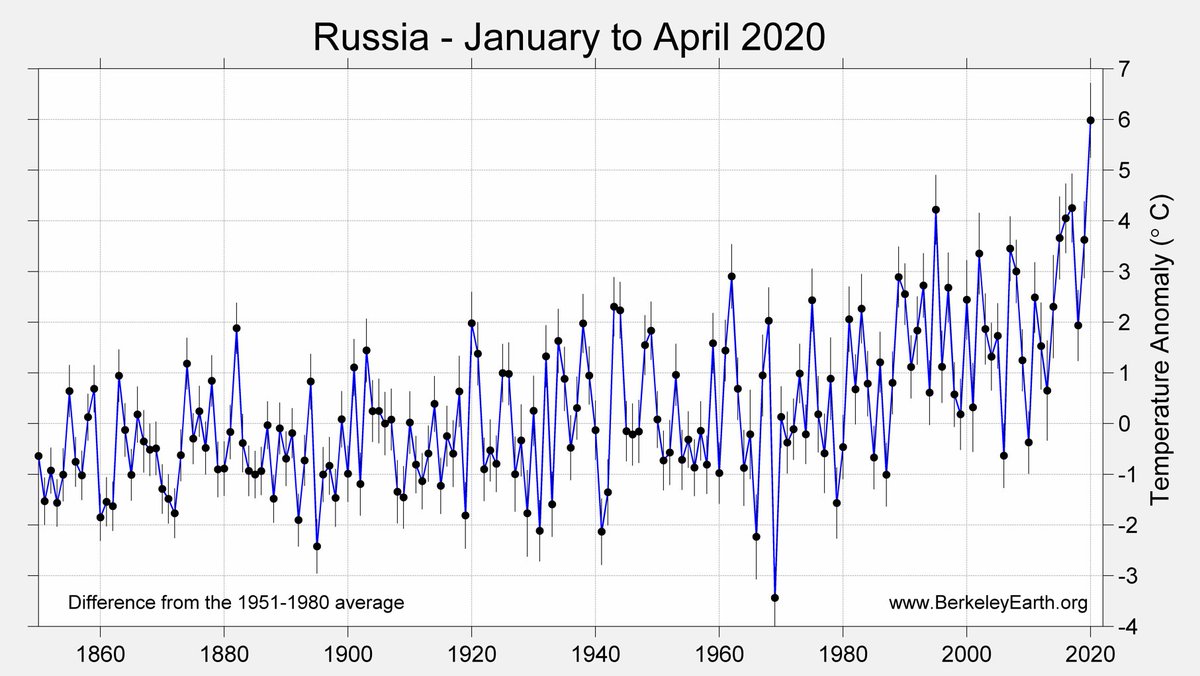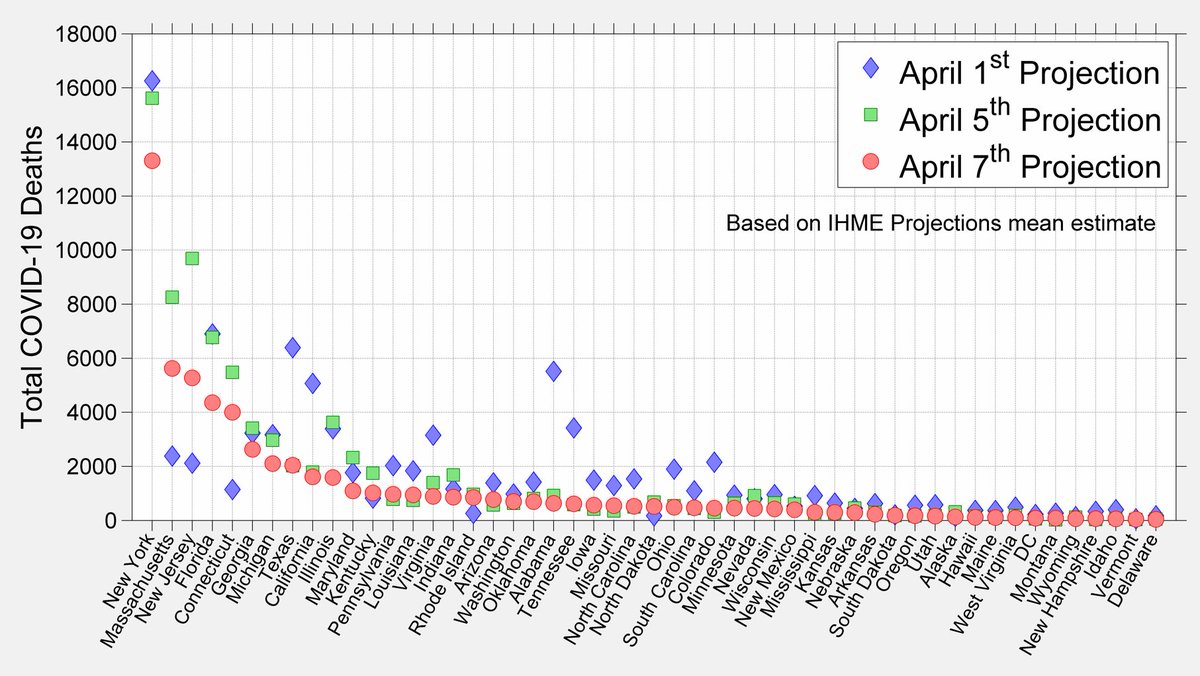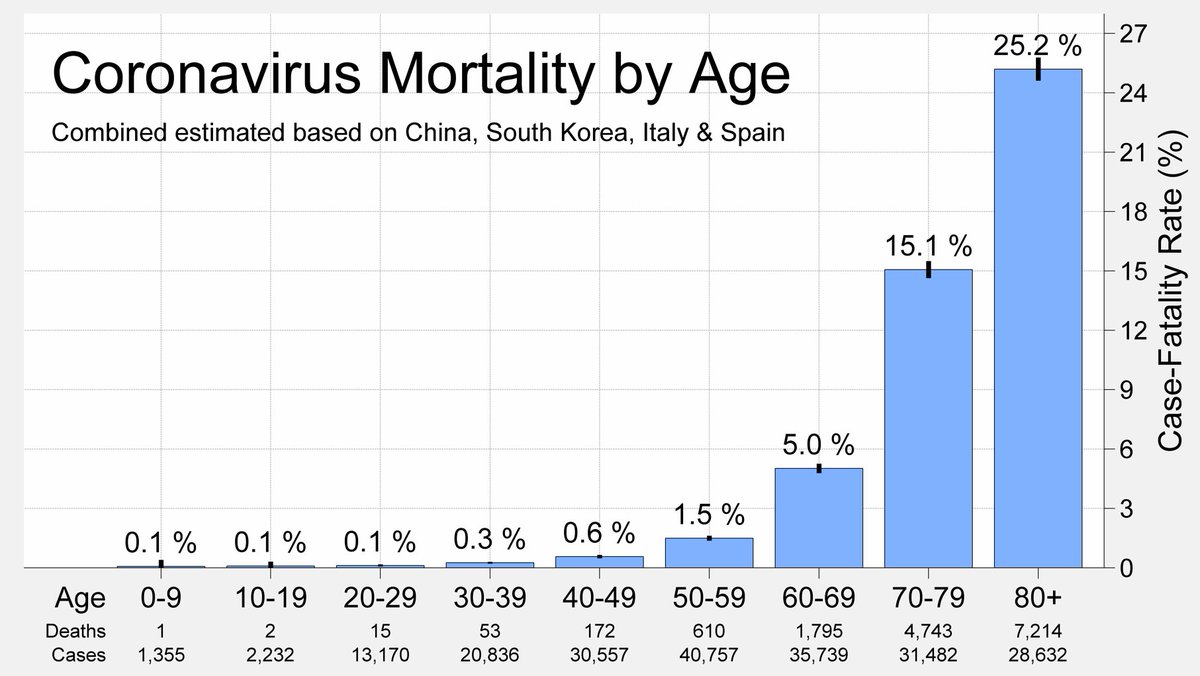
THREAD) Climate scientists often don’t get as much recognition as they deserve.
For this #FollowFriday, I’ve prepared a list of 13 professional climate scientists, with at least 20,000 followers each, but which @Twitter has not yet @Verified.
Maybe change that @TwitterSupport?
For this #FollowFriday, I’ve prepared a list of 13 professional climate scientists, with at least 20,000 followers each, but which @Twitter has not yet @Verified.
Maybe change that @TwitterSupport?
First up, Professor Stefan Rahmstrof (@rahmstorf) is Head of Earth System Analysis at the Potsdam Institute for Climate Impact Research.
He is a leading climate scientist, 2017 winner of the @theAGU's Climate Communication Prize, and an expert on the oceans. 2/
He is a leading climate scientist, 2017 winner of the @theAGU's Climate Communication Prize, and an expert on the oceans. 2/
Dr. Kate Marvel (@DrKateMarvel) of Columbia University & NASA’s Goddard Institute for Space Science.
She develops and evaluates climate models, while also frequently writing & speaking about climate change. One of @TIME’s "15 Women Leading the Fight Against Climate Change". 3/
She develops and evaluates climate models, while also frequently writing & speaking about climate change. One of @TIME’s "15 Women Leading the Fight Against Climate Change". 3/
Professor Kevin Anderson (@KevinClimate) of the University of Manchester & former Director of the UK’s Tyndall Centre for Climate Change Research.
His work focuses on crafting policy scenarios for how governments can transition away from carbon and towards clean energy. 4/
His work focuses on crafting policy scenarios for how governments can transition away from carbon and towards clean energy. 4/
Professor Naomi Oreskes (@NaomiOreskes) of Harvard University.
Historian of science and prolific author whose works look at the nature of scientific consensus, as well as the organized disinformation campaigns to delay climate action. She wrote Merchants of Doubt. 5/
Historian of science and prolific author whose works look at the nature of scientific consensus, as well as the organized disinformation campaigns to delay climate action. She wrote Merchants of Doubt. 5/
Professor John Rockström (@jrockstrom) is Director of the Potsdam Institute for Climate Impact Research.
He is a leader in developing policies for global sustainability with an emphasis on food and water resources, and 2015 Winner of the International Cosmos Prize. 6/
He is a leader in developing policies for global sustainability with an emphasis on food and water resources, and 2015 Winner of the International Cosmos Prize. 6/
Professor Leah Stokes (@leahstokes) of UC Santa Barbara.
She is a political scientist and author working on energy, climate, and environmental policy. She frequently examines the role of special interests and climate denial in shaping and delaying the USA's climate response. 7/
She is a political scientist and author working on energy, climate, and environmental policy. She frequently examines the role of special interests and climate denial in shaping and delaying the USA's climate response. 7/
Dr. Zeke Hausfather (@hausfath) is the Director of Climate and Energy for @theBTI, a scientist with @BerkeleyEarth, and a writer for @CarbonBrief.
As a researcher and frequent science communicator, his work focuses weather, climate, energy systems and energy policy. 8/
As a researcher and frequent science communicator, his work focuses weather, climate, energy systems and energy policy. 8/
Dr. Glen Peters (@Peters_Glen) is Research Director for the Center for International Climate Research and a leader of the Global Carbon Project.
His works provides an understanding of past and present emissions of greenhouse gases, as well as scenarios for future development. 9/
His works provides an understanding of past and present emissions of greenhouse gases, as well as scenarios for future development. 9/
Dr. Valerie Masson-Delmotte (@valmasdel) is a Senior Scientist at the Laboratoire des Sciences du Climat et de l'Environnement, and current co-chair for WG1 in the IPCC.
Her research uses data to reconstruct past climates, improve modeling, and better understand the future. 10/
Her research uses data to reconstruct past climates, improve modeling, and better understand the future. 10/
Professor Julia Steinberger (@JKSteinberger) of Ecological Economics at the University of Lausanne.
Her work focuses on the environmental impact of social and economic activity and the development of pathways to transition to a low-carbon, sustainable economy. 11/
Her work focuses on the environmental impact of social and economic activity and the development of pathways to transition to a low-carbon, sustainable economy. 11/
Dr. Robert Rohde (@RARohde) is Lead Scientist at @BerkeleyEarth.
His work focuses on placing current and historical weather observations in a climate context, as well as examining energy and air quality issues. Lead for the Berkeley Earth global temperature analysis. 12/
His work focuses on placing current and historical weather observations in a climate context, as well as examining energy and air quality issues. Lead for the Berkeley Earth global temperature analysis. 12/
Dr. Heidi Cullen (@HeidiCullen) is Director of Communications & Strategic Initiatives at the Monterey Bay Aquarium Research Institute.
She worked on extreme weather attribution, and now focuses on climate and ocean science communication.
Wrote: The Weather of the Future. 13/
She worked on extreme weather attribution, and now focuses on climate and ocean science communication.
Wrote: The Weather of the Future. 13/
Professor Terry Hughes (@ProfTerryHughes) of James Cook University.
He is a prolific researcher and leading expert on coral reefs and the threats posed to them by climate change. For many years, he was the Director of the ARC Centre of Excellence for Coral Reef Studies. 14/
He is a prolific researcher and leading expert on coral reefs and the threats posed to them by climate change. For many years, he was the Director of the ARC Centre of Excellence for Coral Reef Studies. 14/
The above list is not exhaustive, but it is meant to highlight a few of the talented climate scientists, who already have a large following on Twitter, but haven’t yet been @verified by @Twitter. 15/
Now, I realize that a blue checkmark on Twitter isn’t really a big deal.
But shouldn’t we be giving at least as much recognition to the experts fighting climate change - one of the world’s largest problems - as we do to minor athletes, local politicians, and obscure brands? 16/
But shouldn’t we be giving at least as much recognition to the experts fighting climate change - one of the world’s largest problems - as we do to minor athletes, local politicians, and obscure brands? 16/
In addition to the short list presented above, there are many, many more climate scientists on Twitter, and you can use @KHayhoe’s excellent list for discovering more. 17/
twitter.com/i/lists/105306…
twitter.com/i/lists/105306…
Thanks for listening.
Lastly, who are your suggestions for other climate people on Twitter who also deserve more recognition than they are currently getting? 18/18
Lastly, who are your suggestions for other climate people on Twitter who also deserve more recognition than they are currently getting? 18/18
• • •
Missing some Tweet in this thread? You can try to
force a refresh












